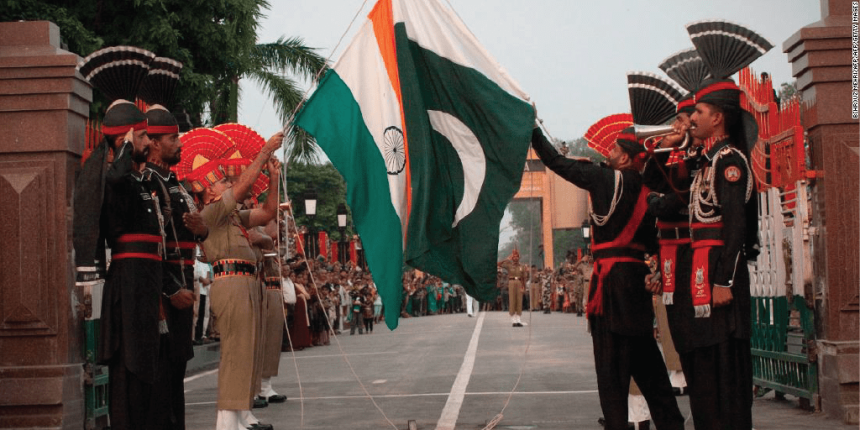Pakistan and India share a long history of animosity and hostility, which prescribes that both need to be involved in continuous and rigorous negotiation either bilaterally or with the help of the third party. But in reality, the parties are not involved in negotiations by either process. The only time when negotiations lead to a successful agreement between Pakistan and India was in 1960, which resulted in the Indus Water Treaty facilitated by the World Bank and Russia.[1] Both countries tried multiple time to negotiate but due to one reason or another either negotiations didn’t happen or they result in deadlock. Kashmir is important for both countries, especially Pakistan because it shares a common ideology with Kashmir and is called as the Jugular vein of Pakistan. Whereas India, on the other hand, considers it as its integral part despite the fact that it was India herself who took the issue of the disputed territory to the UN for the first time.
As per conflict resolution, there are two ways to resolve any conflict, either violent or non-violent way. Pakistan and India have been engaged in violent conflict since 1947 with two wars specifically over Kashmir. It suggests that the violent resolution of the Kashmir issue is not suitable in this scenario. The only option left for the resolution is then non-violent means; it could either include taking the case to the international organizations, like International Court of Justice, United Nations, etc or negotiations, which could be bilateral or with the help of third party involvement. India took the issue of Kashmir in United Nations Security Council but then itself didn’t follow the recommendations suggested by UNSC, rather took advantage of its upper position in post-1971 scenario and proposed in article 1, clause (ii) of Simla agreement 1972 that:
“That the two countries are resolved to settle their differences by peaceful means through bilateral negotiations or by any other peaceful means mutually agreed upon between them. Pending the final settlement of any of the problems between the two countries, neither side shall unilaterally alter the situation and both shall prevent the organization, assistance or encouragement of any acts detrimental to the maintenance of peaceful and harmonious relations”[2]
Pakistan being in the weak position had to sign the agreement, which further restricts each other from involving in each other’s internal matters. So, the option of taking the issue to international organizations become impossible as a consequence of the agreement. As far as bilateral negotiation is concerned, both countries failed to find a solution to the issue. In 2003, the then president Pervaiz Musharaf proposed four stages proposed formula in 2003, according to which he proposed that first and foremost thing to do is to identify Kashmir as a disputed territory. The basic problem with the Kashmir issue is that both countries see Kashmir differently; one considers it as an internal matter and others consider it as a disputed territory. India uses the avoidance strategy whenever comes on the negotiation table, and India diverts from the real issue and focuses on Pakistan’s internal problems, like terrorism and blamed Pakistan for cross border terrorism. Musharraf again proposed another four point’s formula in 2006, according to which the solution is de-militarization of Kashmir, self-governance, agreement on border and finally mutual administration by India and Pakistan.[3] But the Indian government didn’t do much than some betterment at Line of Control.
As per the basics of negotiations, one cannot bargain on the position. So it is important to analyze the position of both parties in this regard, Pakistan’s position is that Kashmiri’s should be given the right of self-determination and India’s position since a decade is that Kashmir is the internal issue of India, and Pakistan should stop intervening in the internal issues of Pakistan. The very reason why positions cannot be bargained is that a lot of attention is devoted to defining the issue in negotiation and probability of agreement becomes less likely, which obstructs the meetings and leads towards a stalemate.
India, if by any chance due to international pressure, engages in negotiations, she uses avoidance approach. This avoidance strategy used by India in negotiation is the reason why there is a stalemate in negotiations and why Kashmir issue is prolonged till date. Negotiations do not serve the purpose if they are not continuous and have an effective communication. In case of Pakistan and India, the major problem with negotiation stalemate is that if by any chance, both parties agree to sit on the table, the process is not continuous and the governments change and attitude of parties to conflict resolution changes as per.
But the reality is that both need to sit on the table for negotiation to address the unaddressed and undiscussed issues. But on the matter of Kashmir, representation of Kashmir is needed when talking about a solution for Kashmir issue. Because Kashmir is the main party in the whole conflict and neither India nor Pakistan can decide the future of Kashmir on their own. The world has witnessed that wars lead to destruction, especially when the enemy countries are nuclear. The international community must bring Pakistan and India on the table otherwise the world may witness another episode of Hiroshima-Nagasaki.






